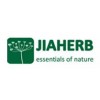Milk Thistle Extract
- FOB Price:Get Latest Price >
- Min.Order:25 Kg(s)
- Production Capacity:100tons
- Payment Terms:L/C , T/T
- Favorite
Business Type:Manufacturer
Country/Region:China
Ddu Verified
HOT Rank


Shaanxi Jiahe Phytochem Co., Ltd.
JIAHERB is a cGMP, ISO series, Kosher and Halal certified company, dedicated to the identification, development and manufacturing of botanical extracts and its derivatives.
Business Type:Manufacturer
Country/Region:China
Ddu Verified
HOT Rank

1. Sources and Habitat
Silybum marianum (L.) Gaertn belongs to the Asteraceae family (Compositae). It is native to southern Europe, southern Russia, Asia Minor and North Africa. It has been naturalized to North and South America.
2. Descriptions and Specifications of Product
Content Specifications: 80% Silymarin Test by UV
30% Silybin (Silibinin) Test by HPLC
For this product, EDMF is available
Silibinin
Molecular Formula: C25H22O10
Molecular Mass: 482.43
CAS No.: 22888-70-6
Constititional Formula:
Isosilybin
Molecular Formula: C25H22O10
Molecular Mass: 482.43
CAS No.: 22888-70-6
Silychristin
Molecular Formula: C25H22O10
Molecular Mass: 482.43
CAS No.: 72581-71-6
Silydianin
Molecular Formula: C25H22O10
Molecular Mass: 482.43
CAS No.: 22888-70-6
3. Indications and Uses
It has the functions of protecting liver cell membrane and improving the liver function. Meanwhile, it has the function of detoxification, reducing the blood fat, benefiting the gallbladder, protecting the brain and removing the free radical of body and active constituent.
4. Safety Concerns
The Agency for Healthcare Research and Quality reviewed the effects of milk thistle on liver disease and cirrhosis, noting that serious adverse reactions are virtually unheard of. The most common reported complaints were gastrointestinal disturbances, but the overall incidence was no different from placebo. Allergic reactions, ranging from pruritus and rash to eczema and anaphylaxis, are rare.
5. Dosage Information
Most clinical trials have used daily dosages of 420 to 480 mg silymarin, divided into two or three doses daily. Until the specific effects of each of the flavonolignans is known and products are available that contain standardized ratios of these components, the optimal dosage will remain unknown.